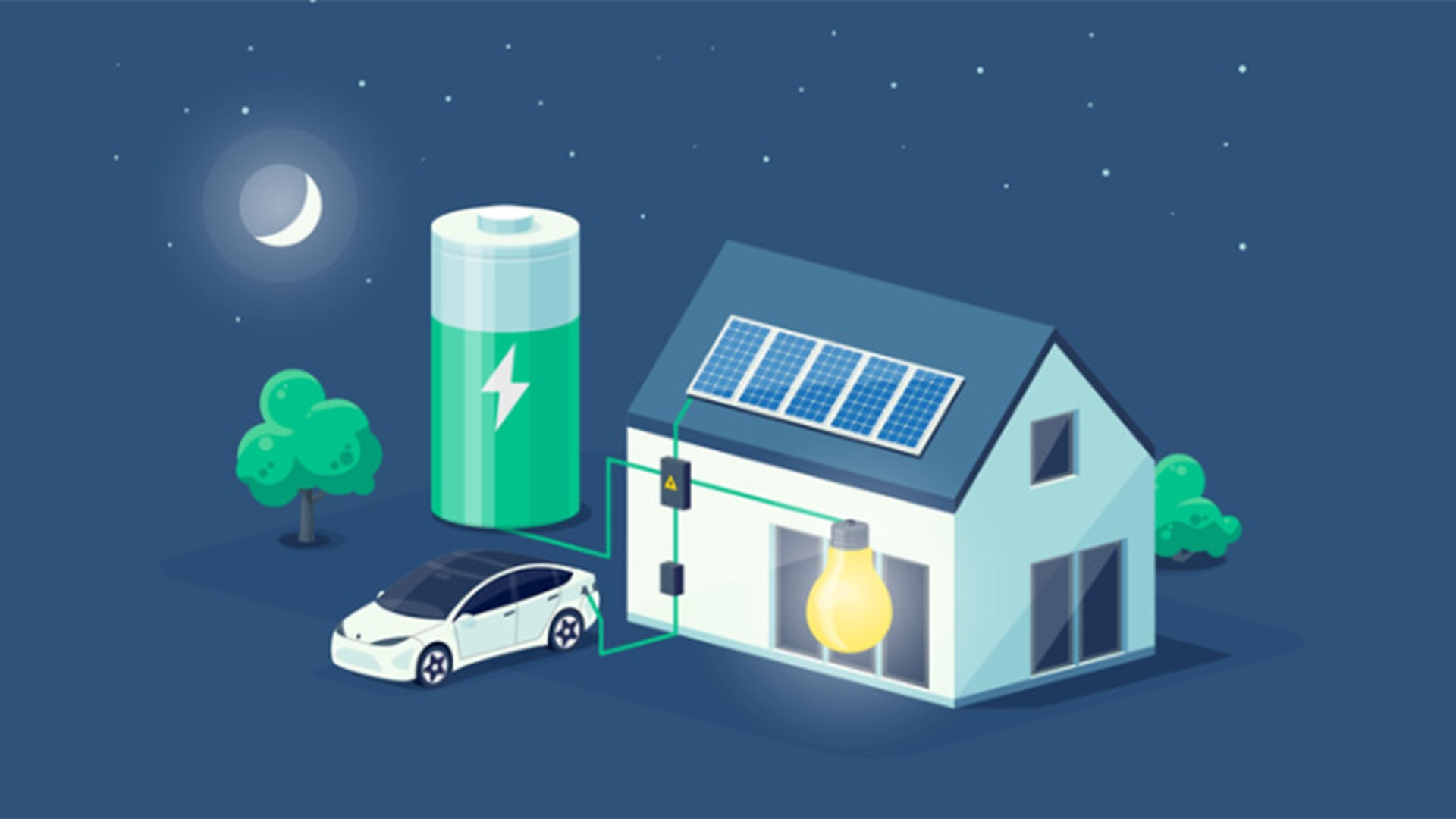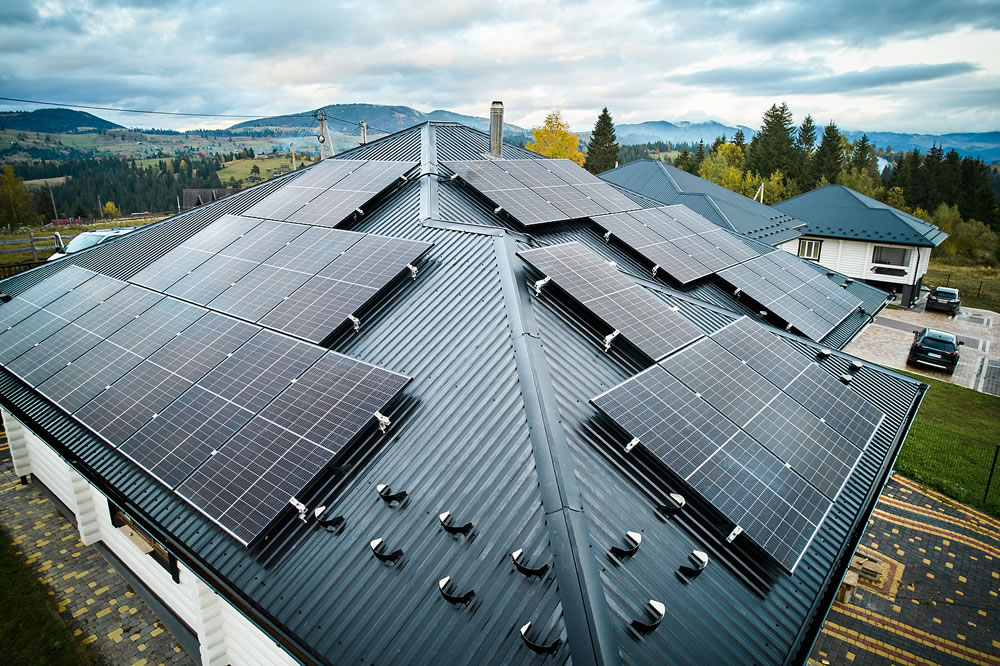A BESS is a type of energy storage system that employs batteries to store and deliver energy in the form of electricity.
Electricity grids and other applications like electric vehicles, solar power installations, and smart houses rely heavily on these kinds of technologies.
Simply put, a BESS is a collection of batteries that can be used to store electricity for later consumption. This energy can be used later on to fulfill the varying electrical needs of a wide range of applications.
Better efficiency and flexibility, quicker response times for powering equipment or devices, and cheaper costs are just some of the benefits that BESS can offer over alternative energy storage systems.

The batteries in a battery energy storage system (BESS) are used to store energy for later consumption.
These batteries can be charged when grid electricity demand is low, or with excess power from renewable sources like wind or solar farms.
When the battery is fully charged, the energy is stored until it is required.
The batteries in a battery energy storage system (BESS) are used to store energy for later consumption.
These batteries can be charged when grid electricity demand is low, or with excess power from renewable sources like wind or solar farms.
When the battery is fully charged, the energy is stored until it is required.
The batteries in a battery energy storage system (BESS) are used to store energy for later consumption.
These batteries can be charged when grid electricity demand is low, or with excess power from renewable sources like wind or solar farms.
When the battery is fully charged, the energy is stored until it is required.
Adapting the electrical system to accommodate more fluctuation and decentralization is essential as we move toward a future powered by renewable energy sources. By storing energy during times of high production and releasing it during times of high demand, a BESS can aid in grid stability. By employing a BESS in this manner, power outages can be minimized and grid reliability improved. This toughness is becoming important as severe weather occurrences become more commonplace around the globe.
Only during times of high electrical demand, known as "peak," do peaker plants generate power. These plants produce more greenhouse gasses than other types of power plants and often run on fossil fuels. By storing energy at times of low demand and providing it during these peak demand periods, a BESS can lessen the load on these plants.
To reach a future with zero emissions, many businesses must be converted to run on electricity rather than fossil fuels. Industries such as transportation and home heating are making the switch from gas and oil to electric alternatives like electric automobiles and heat pumps. Increased electricity demand and grid stress are inevitable outcomes of the electrification shift. Without considerably increasing power producing capacity, a BESS can help control the increased demand and level out consumption, allowing for the incorporation of these electric loads into the energy mix.
Locally, a BESS allows buildings to store extra energy generated by solar panels for use during off-peak hours. This method of utilizing a battery energy storage device promotes greater energy autonomy. Using less electricity from the grid helps cut down on pollution caused by making and transporting power.
Energy storage batteries are crucial for realizing Net-Zero targets in the areas of renewable power generation, grid resilience, pollution reduction, and electrification. The need for battery energy storage is expected to expand as more businesses make the switch to electrification and the demand for electricity rises.

A regular battery is not all that Battery Energy Storage Systems has to offer. Its mechanism is able to capture charge and discharge since it is jam-packed with technological advancements.
Inverters are gadgets that change DC current into AC current. Electrical current in homes and businesses is often a kind of AC.
The BESS's control components supervise the batteries' charging and discharging and the system's interaction with the grid.
The BESS's performance and environmental variables are continuously monitored by built-in sensors, yielding actionable insights into how best to run the system.
Power is stored and released from many batteries within a single module.
Among the many places you'll see BESS in use are:
Using stored energy to meet a portion of the peak demand helps to lower the peak electricity demand. Overall electricity costs and the requirement for new power plants or system upgrades may be lowered as a result of this.
Microgrids can provide power whether they are connected to or removed from the larger power grid.
BESS can offer backup power for a microgrid in an outage and can also help stabilize the grid by providing electricity during high demand periods.
It's a piece of electrical equipment that keeps vital loads running even when the power goes off.
Because of its ability to keep vital machinery running even when the power goes out, BESS is frequently paired with an uninterruptible power supply (UPS).
You can choose from a number of different BESS models to meet your specific requirements and preferences.
Lithium-ion batteries, lead-acid batteries, flow batteries, and flywheels are some of the most prevalent kinds. When comparing performance, lifetime, cost, and other metrics, each variety has its own set of pros and cons.
These batteries are a common form of battery energy storage system (BESS). They have a high energy density and are easy to move and set up because of this.
One more typical BESS configuration uses lead-acid batteries. They don't cost as much as lithium-ion batteries, but they don't last as long and aren't as powerful.
Flow batteries are a more recent innovation in BESS technology that can last significantly longer than either lead-acid or lithium-ion batteries.
They work by storing energy in an electrolyte solution, which may be diverted to different areas of the battery as needed.
Flywheels are another type of energy storage that may store and release electricity by using kinetic energy.
Short-term storage uses, such load balancing or backup power generation, are where flywheels shine.
Using BESS has many benefits, such as:
l Offer a low-cost solution for storing energy that is produced in excess by renewable facilities like wind and solar farms.
l Allows for the use of renewable energy sources' surplus electricity during times when those sources are not in operation, such as when the sun isn't shining or the wind isn't blowing.
l During blackouts or harsh weather, BESS can offer backup power, negating the need for expensive distribution modifications or emergency generators.
l Provide load leveling and grid support to mitigate peak demand and smooth out daily swings in electricity use.
l By compensating for voltage spikes and dips, which can cause malfunctions in sensitive machinery, Bess enhances power quality.
l Businesses and homes alike who need dependable energy storage systems often choose BESS because of how simple it is to set up.

Although BESS has numerous advantages, it is important to think about the disadvantages as well.
l More expensive to install initially than competing energy storage options.
l Some BESS, including those that use lithium-ion batteries or flywheels, have reliability and durability problems.
l More upkeep and supervision is needed, especially if a trained professional doesn't set up the BESS.
l Generally speaking, BESS has a lower reliability than conventional power plants that use fossil fuels or nuclear energy.
Backup power for microgrids, along with help with load balancing and grid support, can be provided by battery energy storage systems (BESS).
Depending on your requirements and preferences, you can choose from a wide variety of BESS, such as those powered by lithium-ion batteries, lead-acid batteries, flow batteries, or flywheels.
Storage of surplus energy from renewable sources like wind or solar farms is one benefit of BESS, but these systems also come with a larger initial investment and the possibility of performance or lifespan difficulties.
Cost, efficiency, and dependability are all factors to think about when settling on the best BESS for your requirements.
A BESS is a form of energy storage system that can be used to store excess energy from renewable sources.
One or more batteries can be used to store and release electricity as needed, making BESS a common component of BESS systems.
Lithium-ion batteries, lead-acid batteries, flow batteries, and flywheels are just some of the BESS options out now.
Costs can be cut by storing extra energy produced by renewable sources, power quality can be improved by decreasing the impact of voltage variations, and backup power can be provided in the event of blackouts or extreme weather.
These include additional initial investment, decreased performance or longevity, and more frequent servicing and monitoring.

扫码关注
We use cookies to understand how our audience uses our site.
Renon Power websites use cookies to deliver and improve the website experience. See our cookie policy for further details on how we use cookies. Privacy Policy